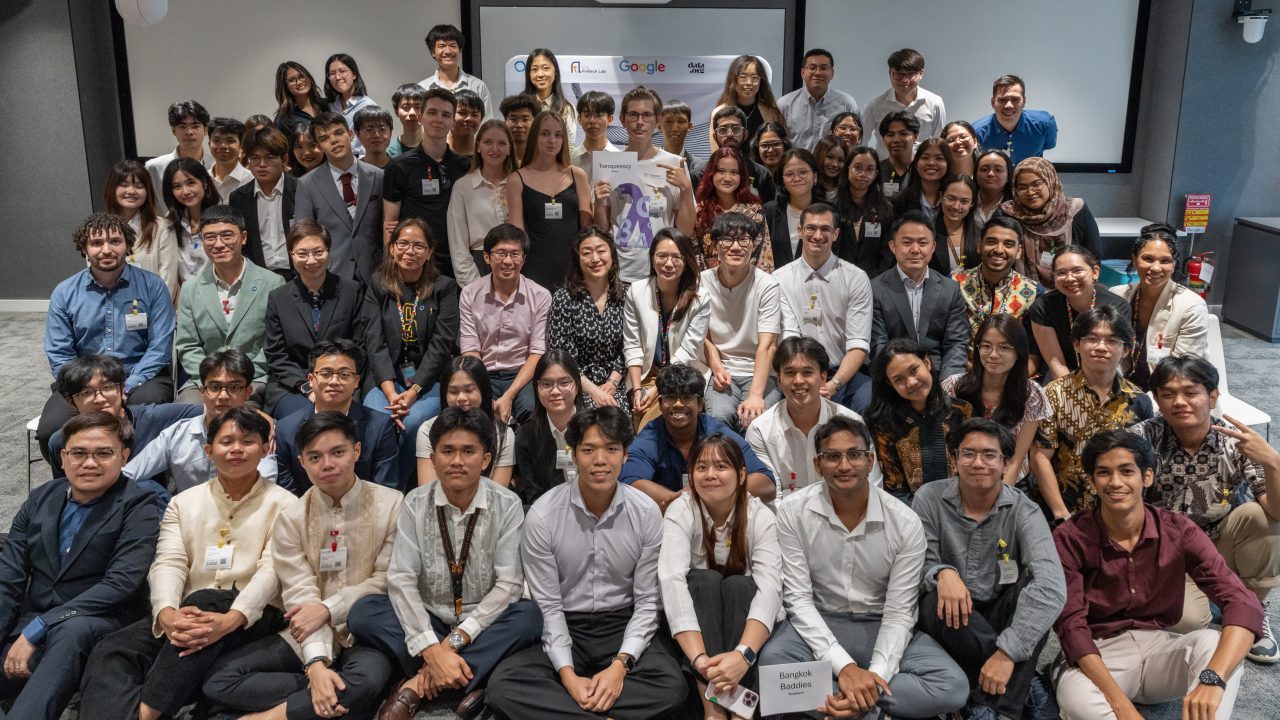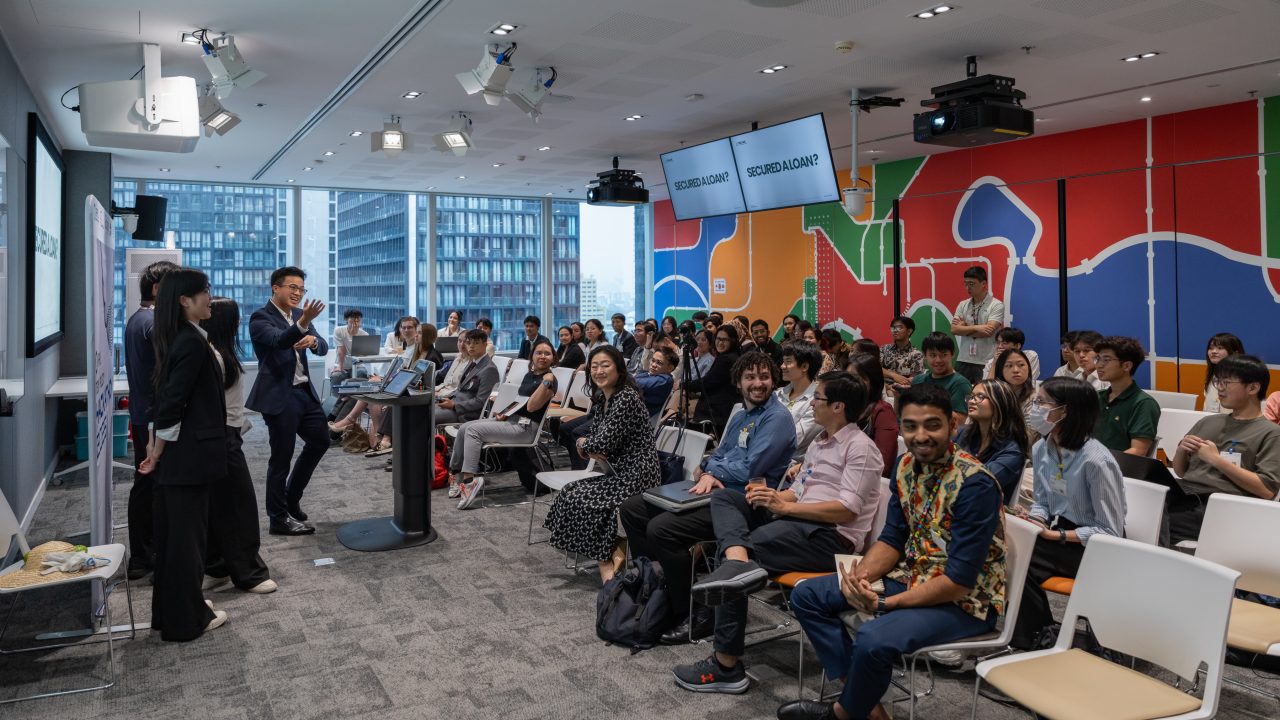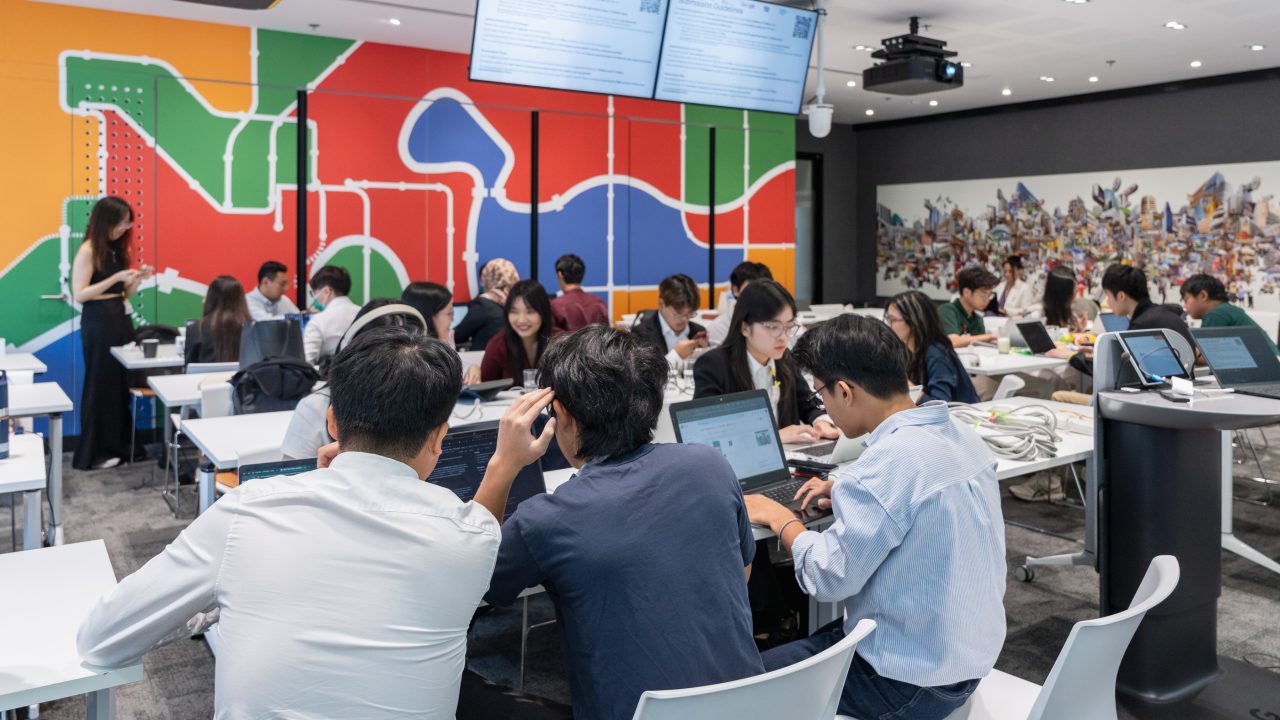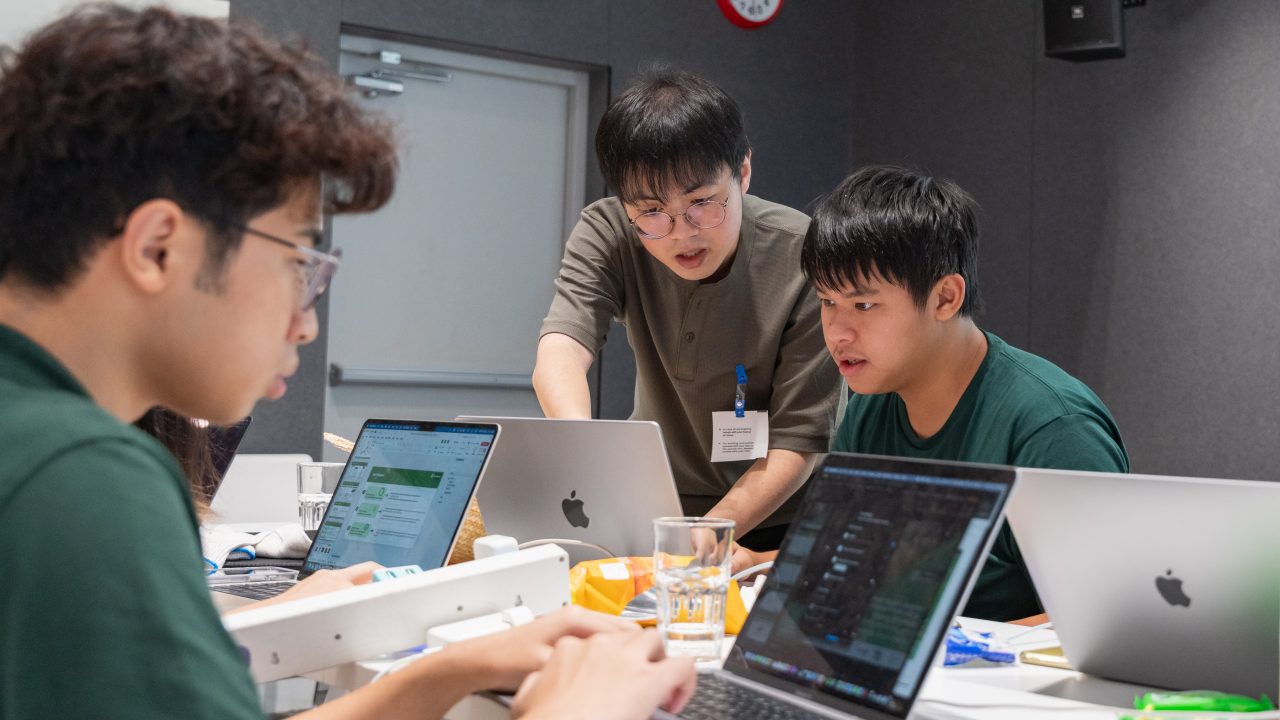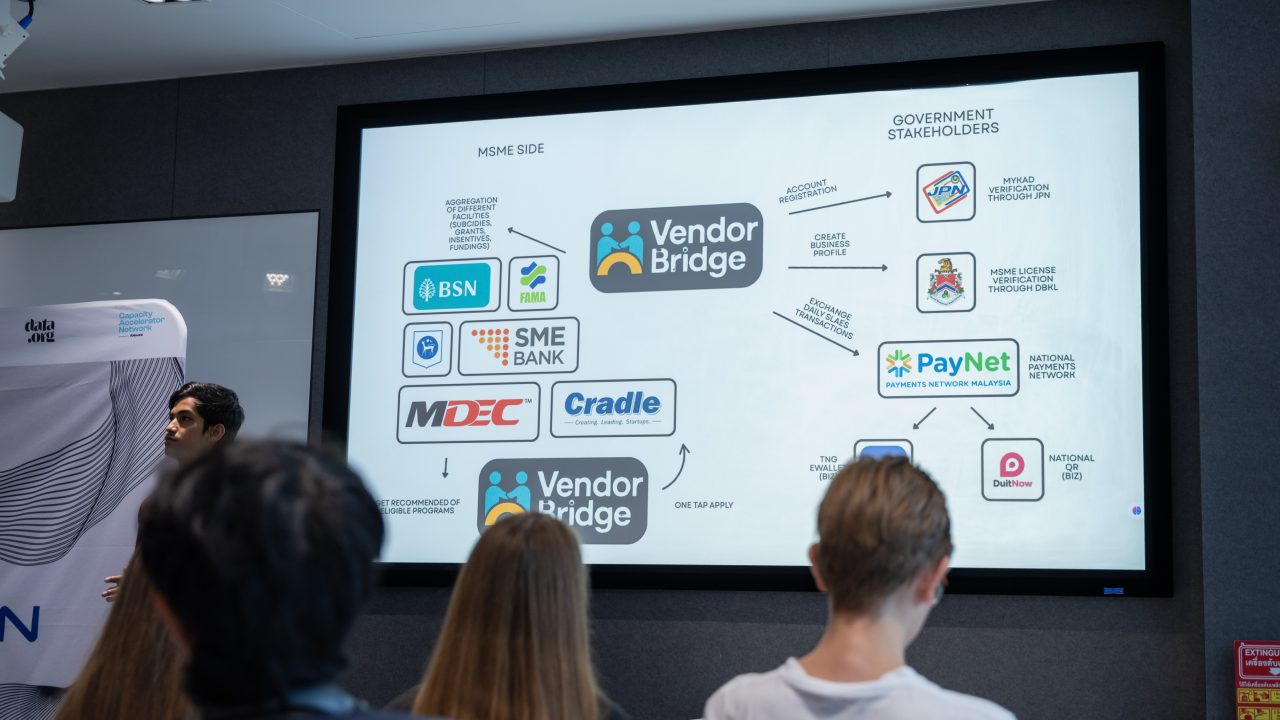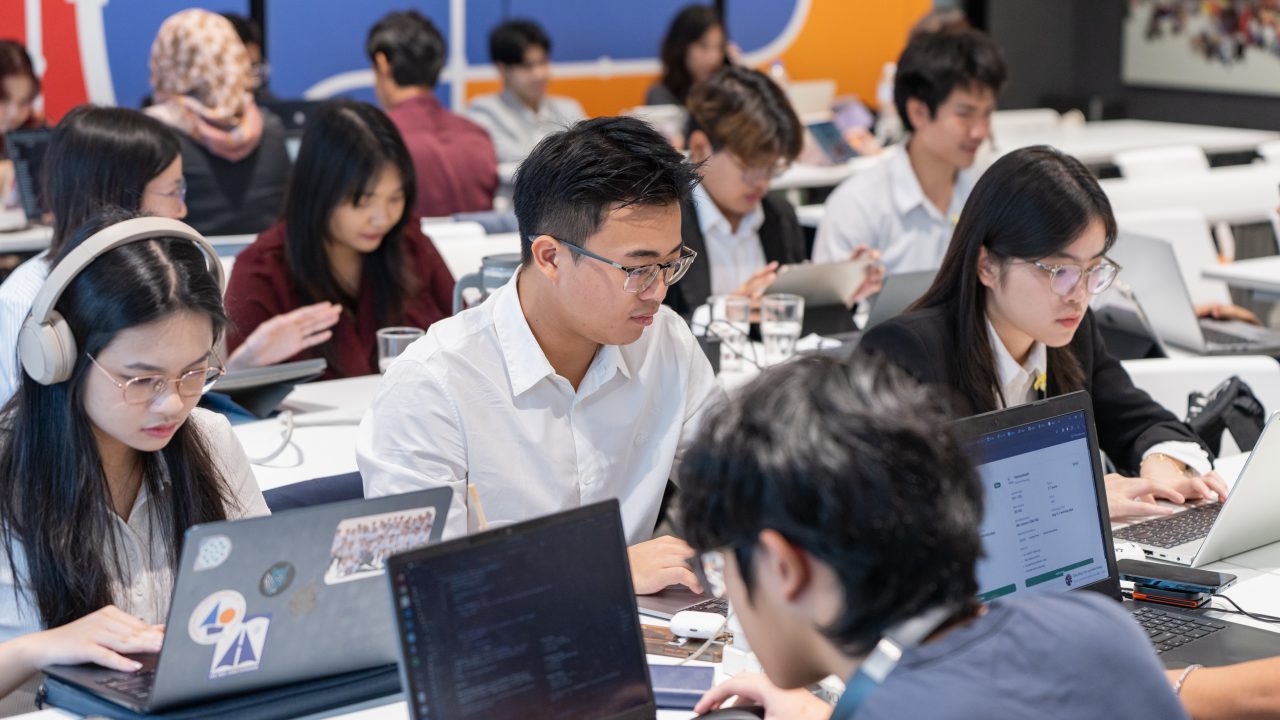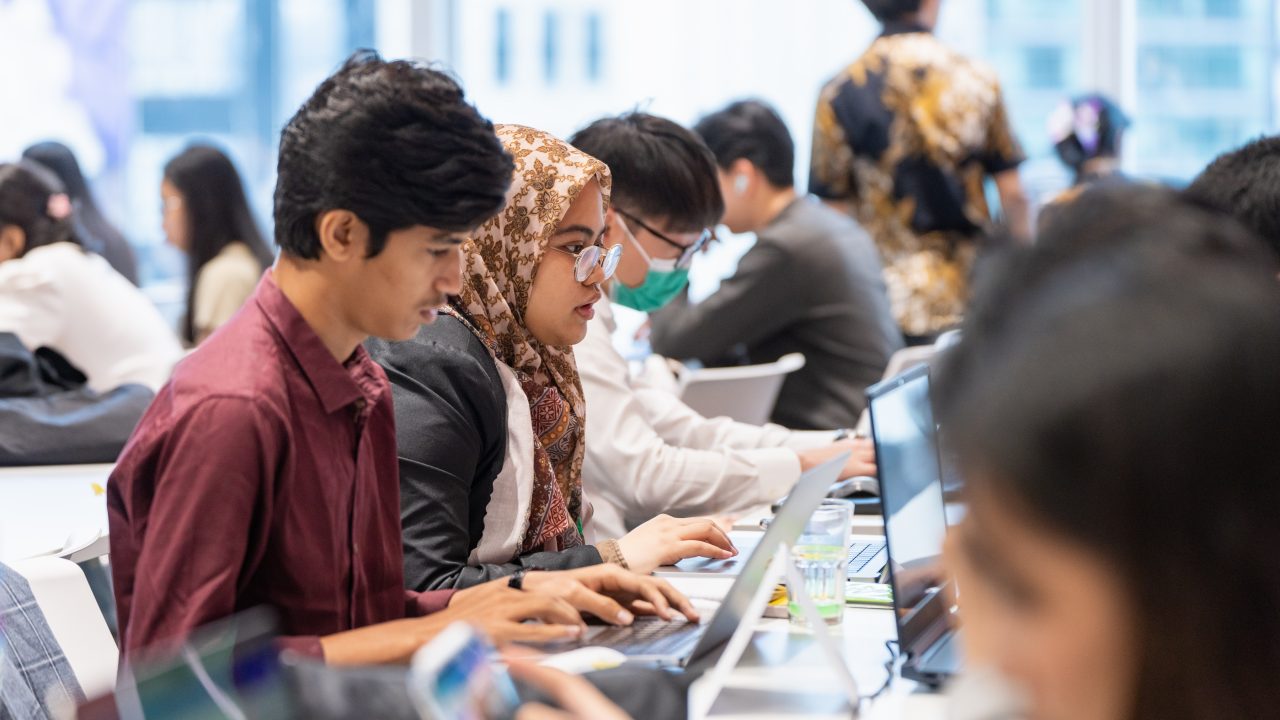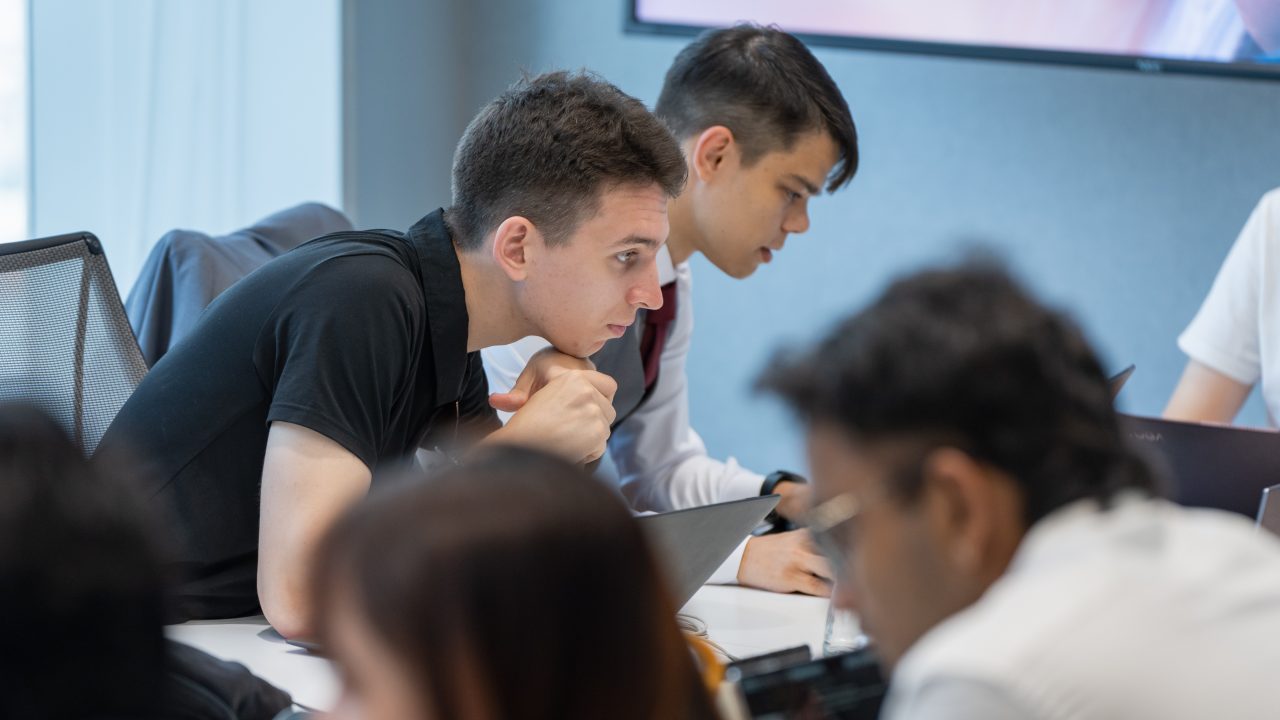With five hubs across Latin America, India, Africa, Asia Pacific (APAC) and the United States, the Capacity Accelerator Network (CAN) is a global community that continues to grow, developing data and AI skills with interdisciplinary expertise while expanding a library of case studies and success stories that can be shared with social impact leaders around the world.
The accelerators live at the intersection of research and practice, academia and industry, community and government.
In each hub academics, government partners, social impact organizations (SIOs), and industry come together with a shared goal of growing the workforce of purpose-driven data and AI practitioners to tackle locally-relevant sectoral challenges.
In Asia Pacific, these cross-sector partners are tackling financial inclusion. As part of APAC CAN, with support from the Mastercard Center for Inclusive Growth, data.org and the Association of Pacific Rim Universities (APRU) are building a next-generation workforce in the classroom and beyond, pushing students and practitioners to expand their respective areas of expertise and create AI solutions tailored to the APAC context. The same is true for the academics, government and industry partners we engage. We want each stakeholder group—again, at the intersection of research and practice—to broaden their perspectives and collaborate in service of the greater good.
By developing rigorous curricula through real-world case studies and pairing it with experiential education, we are not only deepening students’ skills, awareness, and interest through critical thinking and collaboration, but also building a pathway of purpose-driven professionals for tomorrow while helping SIOs and micro, small, and medium enterprises (MSMEs) meet the needs of their communities today.
So, how does this hands-on learning and practical work experience come to life for learners? Here are three programs data.org and APRU are leading to improve workforce outcomes and accelerate our impact in Asia Pacific:
Social Impact Data Science Accelerator (SIDSA)
MSMEs in the APAC region generate valuable operational data every day through their work, yet many lack the technical expertise to synthesize, analyze, and translate it into better decisions and outcomes. SIDSA bridges this gap by pairing social impact driven MSMEs with multidisciplinary academic teams, with support from innovation partner Tandemic, to co-design and implement solutions for their specific data challenge to advance the MSME on its digital transformation journey. Examples of projects these teams tackle include:
- Philippines-based Ark Solves improves the livelihoods of 19,000+ rural families by helping them grow vegetables in their backyard and run a community exchange marketplace to ensure food security and local economic resilience. With limited internet connectivity, they struggle to capture accurate data from these micro-entrepreneurs remotely.
A team from University of the Philippines is helping them build a mobile data collection solution to capture food production data in low-tech environments, as well as an interactive dashboard to track harvest volumes and variety to improve connections between farmers and local markets. - International Development Enterprises (iDE)’s bookkeeping app, Kotra Riel, enables Cambodia’s microentrepreneurs to maintain financial records with the goal of scaling their business through increased financial acumen and improved access to funding. Currently, they support 8,000+ users, including over 3,000 women entrepreneurs. Today, insufficient information about user activity and engagement limits their ability to conduct targeted outreach with products, training, and support.
A team from Asian Institute of Management is developing tools to provide these missing usage by segment and revenue, and creating visualizations to support business development. - The Malaysia-headquartered Roundtable on Sustainable Palm Oil (RSPO) has 5,600+ members from 94 countries and is focused on including smallholder farmers in certified supply chains to enable better market connections. RSPO’s members self-report data about their operations and environmental sustainability. The self-reported data varies significantly in quality and structure across members. Without standardized data, RSPO is unable to use all the member data to inform its strategy and provide targeted support by uplifting smallholder farmer contributions.
A team from City University of Hong Kong is building visualization tools that make the data easier to compare and understand, helping RSPO members share knowledge, spot trends, and learn from successful efforts to include smallholder farmers across regions.
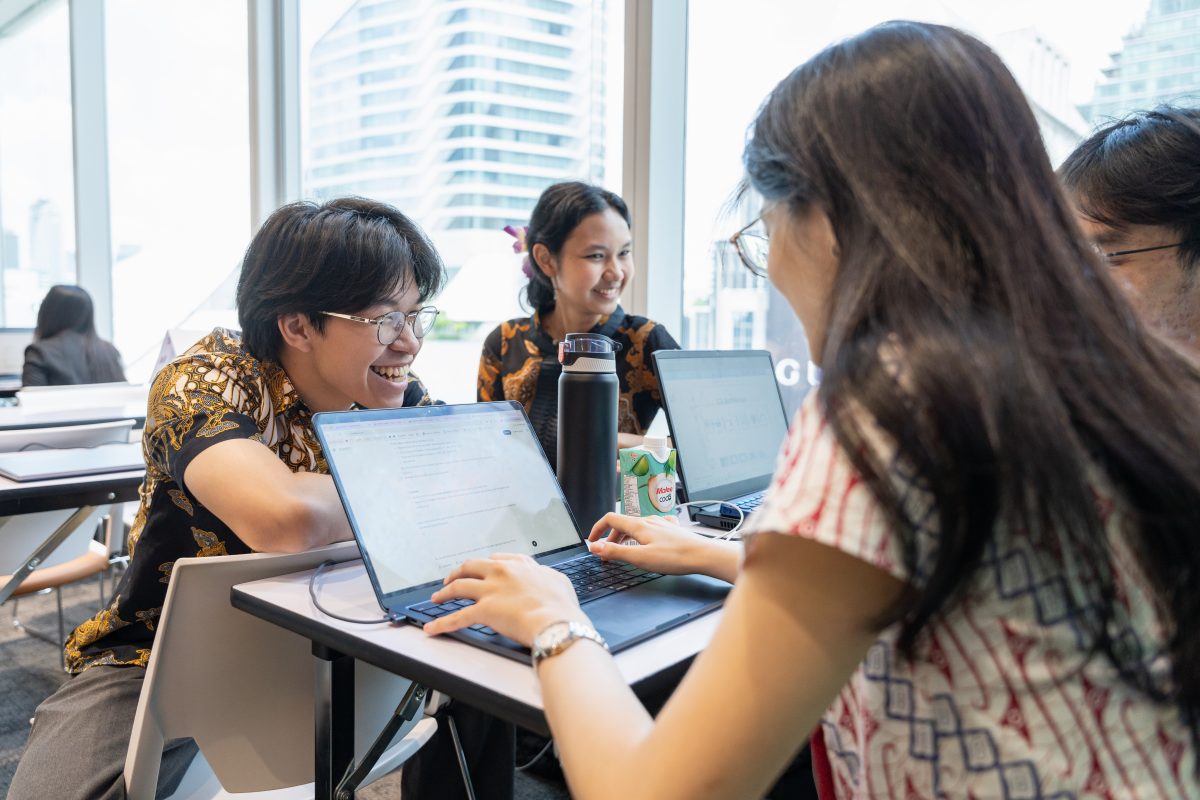
APRU Tech Policy Hackathon
Given the uneven adoption of AI and data literacy across ASEAN, we, along with our partners at Google and NUS FinTech Lab, recently held a tech policy hackathon in Thailand to leverage youth leadership in driving digital policy innovation. More than 70 interdisciplinary teams participated across the region, with students coming from traditional majors like computer science and IT, as well as interdisciplinary fields like economics, political science, and law. Teams were charged with developing context-appropriate solutions—including policy briefs and functional prototypes—that anticipate and respond to the next wave of inclusion challenges in the digital economy. These challenges could include rural digital finance for the unbanked; making micro-loans accessible to MSMEs; avoiding bias in hiring; and ensuring online safety and fraud prevention. Students were mentored by experts from government, UN agencies, private sector, tech companies, nonprofits and civil society organizations, emphasizing the need for multi-stakeholder collaborations to drive policy action. The three-day finale saw teams demonstrating a nuanced understanding of some of the key local challenges with innovative approaches to:
- Finding ways for street vendors and other MSMEs in Indonesia to gain access to funding without a formal credit history
- Applying satellite-derived data and the use of machine learning to increase the credit worthiness of smallholder farmers across Asia
Winning teams received both funding and access to continued mentorship to help transform their solutions into scalable, real-world initiatives.
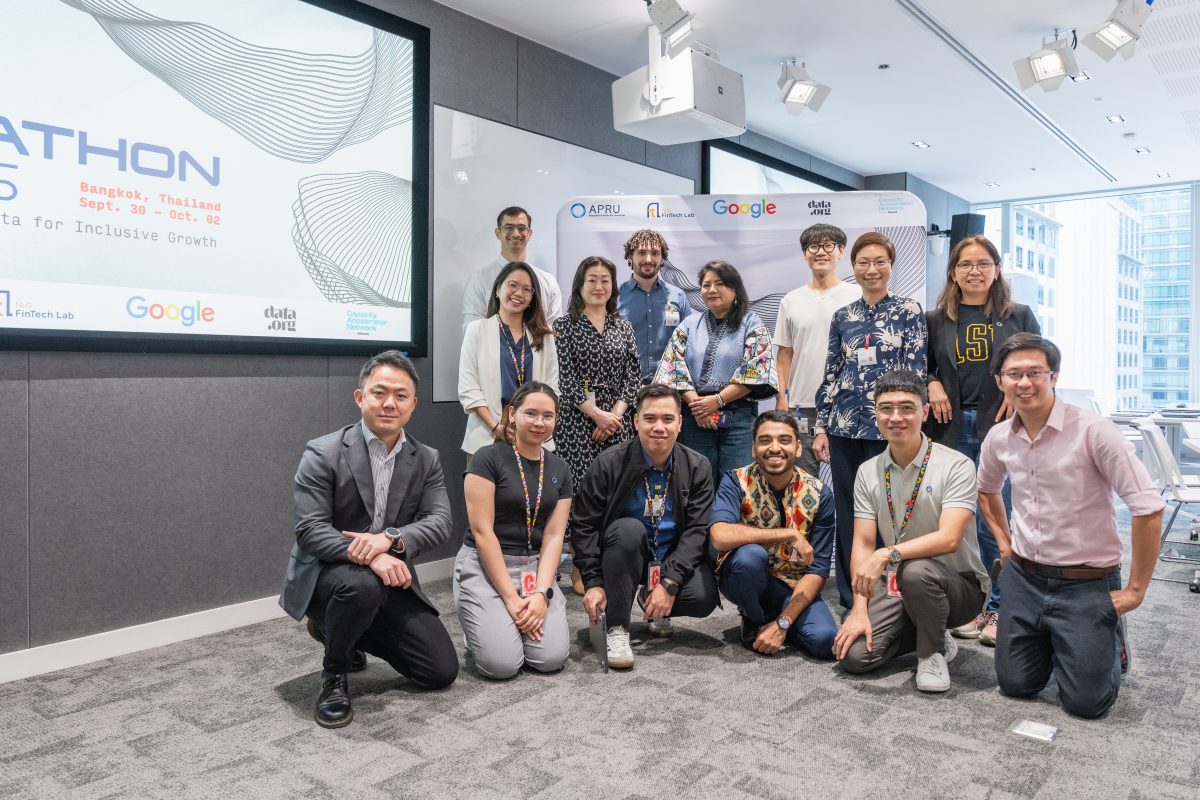
Global Health Virtual Case Competition
While data and AI promise to transform food systems and health equity, governments still face challenges including fragmented indicators, uncertain evidence base, and limited clarity on how technology can be applied equitably. To explore the complexities of this governance gap in Asia Pacific, APRU launched their 2025 Global Health Case Competition in partnership with data.org, the United Nations Development Programme, the Food and Agriculture Organization, and the Universiti Malaya.
The goal was to leverage an experiential learning approach to help university students exercise critical thinking using a real-world problem statement to understand how the region’s food systems can be enhanced, and to propose AI-enabled solutions to strengthen food security. Each team was to select a national government across ASEAN to inform the development of a five-year strategic plan to address food insecurity through a food systems approach.
More than 110 teams entered proposals which focused on several critical themes:
- Data Gaps and Inclusion: Many teams underscored how national surveys and global dashboards often blur or exclude the very groups most at risk—rural smallholders, informal vendors, women caregivers, and indigenous communities. Some recommended citizen-led photo logs of meals, community price tracking in local markets, or farmer-reported crop health data linked with satellite and drone monitoring, all designed to capture realities invisible in official statistics.
- Climate and Food Availability: Several proposals highlighted how droughts and floods destabilize food production. One team suggested linking satellite imagery with IoT sensors and community reporting to anticipate shocks, enabling governments to reallocate stocks before crises deepened. Another extended this approach to AI-guided biofortification strategies, recommending which nutrients to prioritize in fortified foods depending on regional deficiencies.
- Food Access and Affordability: One team proposed combining satellite imagery with household data to identify overlooked poor communities and better target aid. Others focused on logistics, suggesting AI-optimized distribution routes and blockchain-enabled supply chain monitoring to cut transport costs and build trust in food aid delivery.
Collectively, the ideas move beyond single-point fixes to envision AI as an enabler of smarter, more inclusive governance in food and health systems. The Global Health Virtual Case Competition allows a large, interdisciplinary cohort of students to serve as youth policy advisors to governments. Finalists will present their findings at the APRU Global Health Conference 2025.
Together, these programs make up an ecosystem of initiatives. The SIDSA Accelerator addresses organizational-level data challenges. The Hackathon spotlights enabling digital policy. And the Case Competition surfaces bottom-up AI use cases in governance for food and health. Each process and outcome varies, but all contribute to more inclusive growth in the region and highlight the diverse facets of financial health across climate, health, food, AI literacy and economic resilience.
As we look ahead, the need for purpose-driven, AI-literate talent is only growing, not just in Asia Pacific, but globally. The Capacity Accelerator Network in collaboration with partners like APRU is able to conceive and offer programs—like SIDSA, like the Hackathon, and like the Case Competition—producing practitioners who are equipped to tackle the most pressing challenges of our time.
Through immersive, cross-sector partnerships and experiential learning opportunities, we are not only filling today’s talent gaps, we are cultivating a global ecosystem that drives inclusive growth and innovation from the ground up. This is how we prepare and empower the workforce of tomorrow. And through continued collaboration, this is how we scale our collective impact.
About the Authors
Christina Schönleber, Chief Strategy Officer at the Association of Pacific Rim Universities has extensive expertise in translating research to impact.
Read morePriyank Hirani is the Director of Capacity Building at data.org, where he strategizes and implements initiatives to democratize data skills and enable social impact organizations to be data-driven
Read more